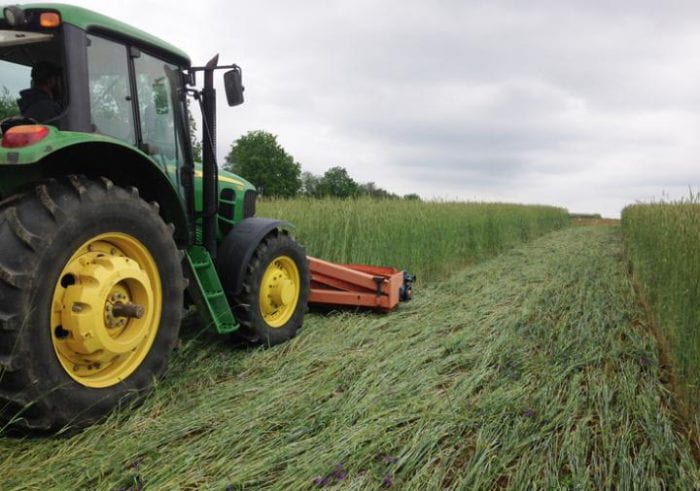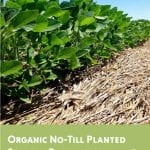Farmers in New York are invited to consider a fresh approach to their practices with the introduction of a Rolled Cover Crop Organic No-Till Soybean Production System.

Cereal rye shown here is being mechanically terminated with a roller-crimper in an organic no-till soybean system. Researchers compared tillage-based soybean production with reduced-tillage soybean production.
CREDIT John Wallace/Penn State
August-September Planting Window
Farmers looking to explore this system are advised to begin by planting cereal rye in late August – early September. Planting cereal rye during this period enables early establishment, increased ground cover, and greater biomass production. The guide underscores the value of early rye seeding through suitable crop rotations, citing the success of small grain crops harvested in mid-summer. In contrast, insufficient time remains for cereal rye to establish a strong stand following corn grain harvesting in the fall. In late May-early June, the cereal rye cover crop is terminated by a roller-crimper mounted to the front of a tractor. The remaining residue forms a thick layer of mulch that protects the soil from heavy rains.
Cornell University’s Sustainable Cropping Systems Lab has compiled a comprehensive guide to aid farmers in adopting this system. The guide offers techniques, insights, and a roadmap for implementation of the Rolled Cover Crop Organic No-Till Soybean Production System.
Farmers interested in accessing the guide and learning more can visit: https://bit.ly/ONTSweb.
“The way rolled rye no-till soybeans is going to pay for itself is not in better soybean yields, but in leaving the field in better condition for future crops,” said Dan Gladstone, production manager at Oechsner Farm in Newfield, NY. Oechsner Farm, Scheffler Farm, Gianforte Farm, and Martens Farm are featured in the guide.
Despite clear benefits, this production system remains challenging, necessitating additional research and on-farm trials. These guidelines aim to foster the successful adoption of rolled cover crop organic no-till soybean production. Interested farmers are encouraged to collaborate with their local Cornell Cooperative Extension office and other farmers who have been successful with this system.
The New York State Environmental Protection Fund for the New York Soil Health Initiative and the USDA’s National Institute of Food and Agriculture provided funding for this work.
